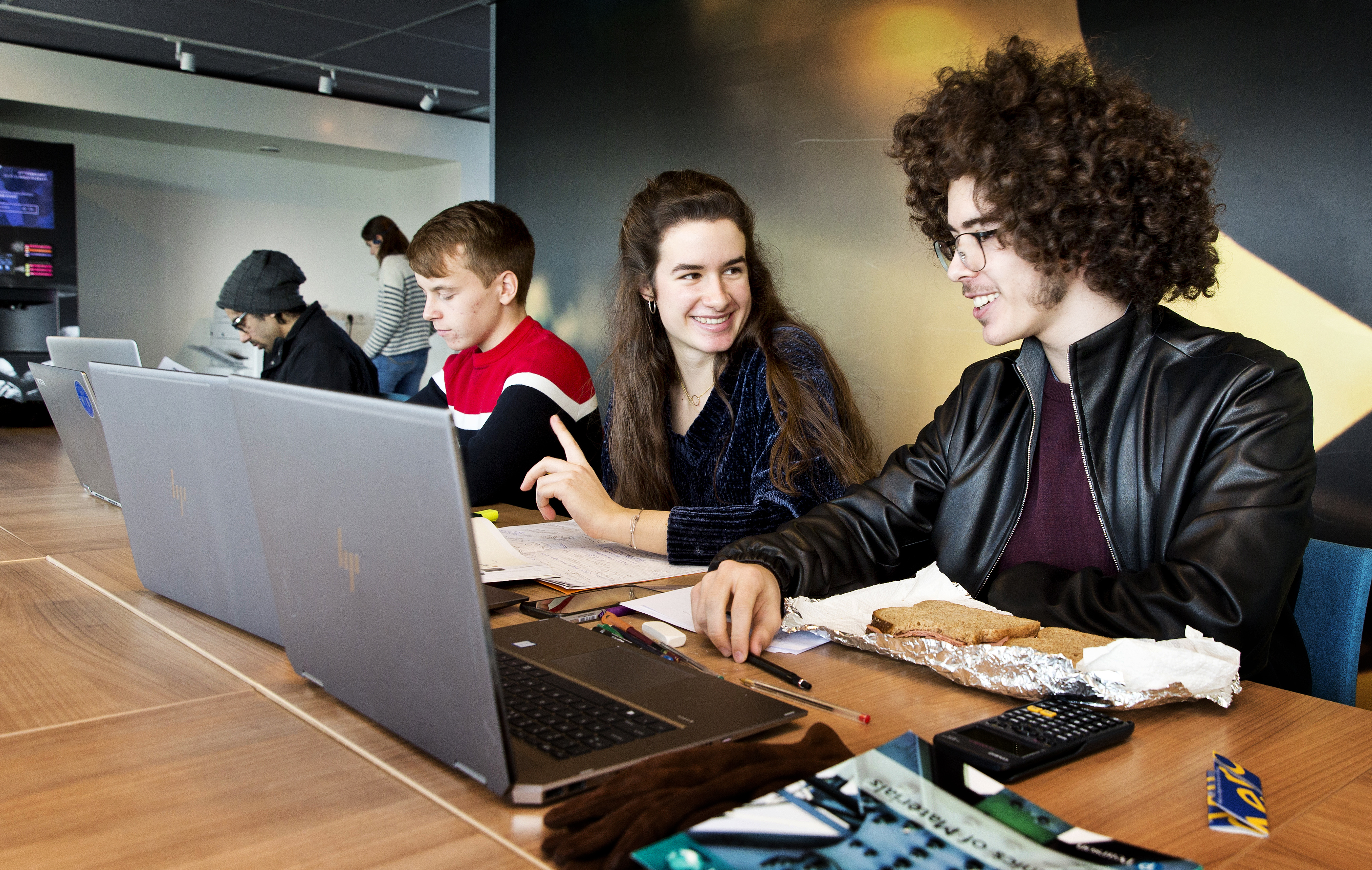Results Visitation of BSc and MSc programme Aerospace Engineering
From June 18 to 20, 2019, the bachelor and master programme Aerospace Engineering were visited by an international panel of peers. They have spoken with different colleagues and students about the content and quality of our programmes. In general, the panel was impressed by our programmes, staff, and students. Drop-out and yield were two main points of attention they considered important for the faculty.
The final report of the panel has now been offered to the Faculty and the formal request has now also been issued to the NVAO, the governing body that evaluates these re-accreditation processes.
General Conclusion
The panel judged that the bachelor’s programme in Aerospace Engineering offered by Delft University of Technology meets all standards of the NVAO assessment framework for limited programme assessment. It therefore advises positively about the re-accreditation of the programme.
The panel judged that the master’s programme in Aerospace Engineering offered by Delft University of Technology meets all standards of the NVAO assessment framework for limited programme assessment. It therefore advises positively about the re-accreditation of the programme.
The panel assesses the bachelor’s programme Aerospace Engineering as ‘positive’.
The panel assesses the master’s programme Aerospace Engineering as ‘positive’.
Development dialogue
Following the site-visit of the panel, there has been a development dialogue between representatives of the Faculty with the panel. The following issues were discussed:
- Challenges concerning the bachelor’s programme
- Master vitalisation
Bachelor’s programme
The Faculty faces several challenges concerning the bachelor’s programme. There is a wish from industry for more interdisciplinarity in the programme, as the most exciting developments in research will be interdisciplinary. The question is how this wish can be integrated in a systems approach. Also, NWO has limited options for funding interdisciplinary research. The challenge is therefore also to maintain a firm grip in the discipline and at the same time collaborate in interdisciplinary projects and educate students to operate in an interdisciplinary environment.
This discussion also leads to the question of what can be defined as a discipline. The programme asked what kind of (sub-)disciplines the panel missed in the bachelor’s programme. The panel did not find any specific disciplines lacking. It mentioned that it is obvious that the programme has a limited amount of time and that it is not possible to teach everything within this limited amount of time. In its opinion, the best option is to train the students to cooperate with and involve experts from other disciplines when needed. One of the strengths of the TU Delft approach is that students are trained to figure out the problems even when the subjects go beyond their discipline.
The programme is also challenged to incorporate autonomy. The Design Synthesis Project (the bachelor graduate project) is a bit rigid and does not allow much autonomy. It was discussed that it must be possible to give students ownership of their project. However, there are still huge checklists that have to be ticked in order to assess every student equally. The general impression now is that that is over-constraining. The panel recommends turning the issue around: changing this culture and making use of peer review. This has to be trained from the first day in the bachelor’s programme by training the students to take responsibility for their studies and how to challenge themselves. This can start simple by introducing feedback and reflection, and build up to full peer review in the DSP.
Master vitalisation
One of the objectives of vitalisation the master’s programme is to make sure that the programme is feasible within the nominal study time. The programme management is considering restructuring the master’s programme in order to gain more flexibility. The revitalisation will follow the process that has been followed for restructuring the bachelor programme.
During the discussion a draft framework was presented and discussed. On top of the specialisation in disciplinary tracks, this framework structures the master in three variants: fundamental, applied and a mixture of the two (‘cross’), with the aim to be better prepared to apply the programme to the students’ wishes and the needs of the companies. The panel advises avoiding the direct link between fundamental as a description for academic problems and applied for industrial or societal problems. More flexibility could also mean that not every student has to finish the master’s programme with a scientific thesis; other products could be considered as a final proof that the intended learning outcomes have been achieved.
Another issue raised during the discussion was how to deal with the international students when the programme is more flexible. International students often have a hard time finding internships. The students are responsible for this, and they have to take the initiative to approach the companies or ask the internship coordinator or professors to help them. There are not many places in the world where students enter the university with the confidence to approach professors. Cultural differences also restrain the international students from finding their own way. The programme management has to make sure that it is aware of these cultural differences and the obstacles for international students.
One of the goals of the revitalisation is to tackle the problem of long study duration. The draft scheme gives more structure. According to the panel, the choice of the internship is a major source of delay. Doing an internship in 12 weeks is often not possible. The framework must offer the flexibility to extend it without causing delay. The draft framework structure could make it even harder to find an internship. More generally, the panel thinks a vision should be present at the start of restructuring the master, in which the position of the internship in the programme should be reconsidered.
